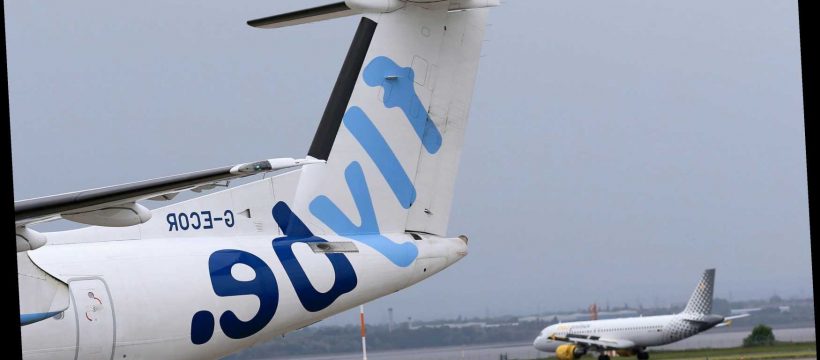BRITAIN'S biggest regional airline, Flybe, is reported to be on the brink of collapse.
The Government is reportedly considering a potential 'rescue package' to save the struggling airline suffering rising losses, which would involve a cut to air passenger duty on domestic flights in a bid to save Flybe.
But who owns Europe's largest regional airline, and could it to go into administration?
Who owns Flybe?
The Exeter-based carrier was bought by a consortium consisting of Virgin Atlantic, Stobart Group and Cyrus Capital in February 2019 following poor financial results.
The consortium, known as Connect Airways, paid just £2.2million for Flybe's assets but pledged to pump tens of millions of pounds into the loss-making airline to turn it around.
About 2,000 people are employed by the airline.
Is Flybe still operating and why is it in trouble?
Discussions were held with the Department for Business, Energy and Industrial Strategy (BEIS) and the Department for Transport (DfT) over the weekend to see whether they could provide or facilitate emergency financing.
The holding of rescue talks with the Government indicates the financing requirements have become greater than expected.
Flybe has been hit by a series of problems, including falling demand, rising fuel costs and the weakening of the pound.
If it collapses, it would be the second UK airline to fail in four months, following the demise of Thomas Cook.
Flights operated as normal on Tuesday, January 14.
When was Flybe founded and where does it fly to?
The airline began as Jersey European Airways in 1979, operating regional flights from Jersey.
Its route network grew and it was re-branded British European in 2000, before becoming Flybe in 2002.
It flies to France, Germany, Ireland, Italy, Luxembourg, Netherlands and Switzerland, as well as the Isle of May, Guernsey and Jersey.
A Flybe spokeswoman said: "Flybe continues to focus on providing great service and connectivity for our customers, to ensure that they can continue to travel as planned.
"We don't comment on rumour or speculation."
Spokesmen for BEIS and the DfT issued identical statements which read: "We do not comment on speculation or the financial affairs of private companies."
What is air passenger duty and could it be cut to save Flybe?
The aviation industry has long opposed air passenger duty, a tax of at least 13 pounds levid on passengers departing from UK airports.
Flybe has said its business is harmed by the tax as it makes flights more expensive versus its rail and road competitors, because passengers traveling on return flights within the UK will pay it twice.
With Flybe’s finances at breaking point, government officials are discussing cutting air passenger taxes on all domestic flights to help rescue the regional airline.
Flybe has been holding talks with the Department for Business, Energy and Industrial Strategy and the Department for Transport on whether the government could provide or facilitate any emergency financing to the company.
Chancellor Sajid Javid is expected to meet the departments on Tuesday the 14th January to discuss lowering the levy, a change that would allow Flybe to defer a tax bill, implement a rescue plan, and secure more than 2,000 jobs.
The possible deal would allow Flybe to defer a payment of more than 100 million pounds for three years.
Under the plan, Flybe’s owners, a group which includes Virgin Atlantic and which themselves rescued Flybe financially in 2019, would be required to invest tens of millions of pounds of new equity as a condition of any deal.
However while discussions take place, the accountancy firm EY is on standby to handle the possible administration of the Flybe Group.
What to do if you have Flybe flights booked
Flybe is not ATOL protected – meaning travellers would have to pay for their own new flights themselves.
However, passengers are advised to always pay for flights on a credit card as they can then try and claim costs back through consumer protection law Section 75.
You may also be protected if your travel insurance has "travel abandonment" cover, although few providers offer this.
Source: Read Full Article

